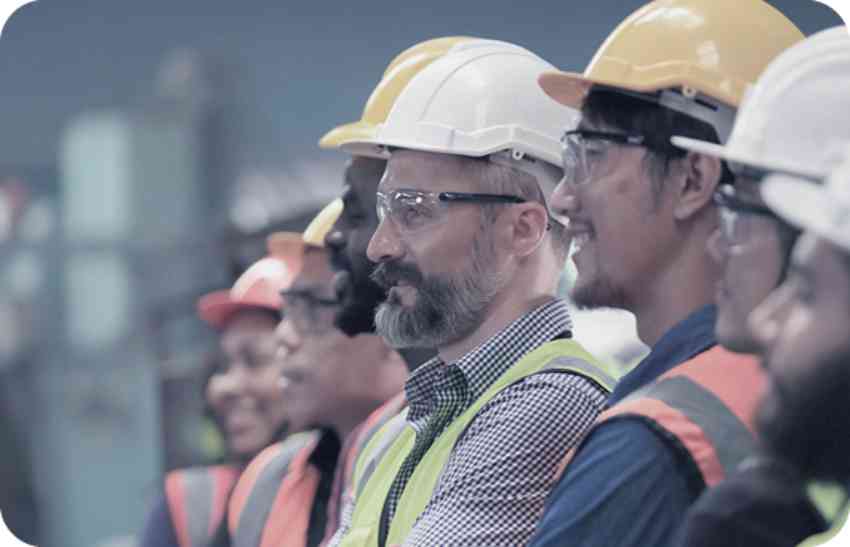Astute People is a specialist recruitment partner operating in the UK and the US. The company helps employers secure high-calibre talent for technical engineering, commercial and C-suite positions. Their consultants deliver permanent hires, contract staffing and executive search, all underpinned by in-house market research and rigorous compliance. The result is a fast, transparent service that matches the right people to the right roles, first time.
Interview with Matt Dickens, Sales Director at Astute People.
What are the main areas of activity of the company?
Matt Dickens: We focus on three core areas:
- Technical Engineering and Manufacturing, covering design, development, production and maintenance roles.
- Commercial Functions, including sales, procurement, supply chain and project management.
- Executive Search, identifying leadership talent for board and senior management positions.
What’s the news about new products/services?
M.D: The launch of our People Plus service has been successful, achieving a 93% success rate and an average time to fill of only 39 days, well below the industry standard of 67 days.
People Plus is our retained recruitment solution designed for businesses that are serious about building exceptional Power, Renewables and Nuclear teams. People Plus blends premium advertising, bespoke marketing support and a dedicated delivery team.
What are the ranges of products/services?
M.D: Our service portfolio centres on four core products, each designed to solve a distinct hiring challenge.
People Lite offers a rapid contingent search for a single role or a niche skill set, giving employers speed without sacrificing quality.
People Plus is a retained model that blends premium advertising, bespoke marketing campaigns and a dedicated delivery squad to secure critical technical and commercial talent.
People Solutions supplies scalable contract and interim staff, underpinned by in-house payroll and compliance, making it ideal for project surges or plant outages.

People Search provides discreet executive search for C-suite and senior leadership appointments.
Alongside these flagship products, we deliver permanent recruitment, RPO solutions, executive head-hunting, market mapping and salary benchmarking, plus end-to-end candidate screening, compliance and payroll management, so clients receive a fully integrated service from a single partner.
What is the state of the market where you are currently active?
M.D: Right now, we’re operating in one of the tightest technical talent markets I have seen in a while.
In the UK, engineering employers are still in growth mode, with more than four in ten planning to add headcount this quarter while 44% expect to hold steady, meaning churn is minimal. Across the Atlantic, industry surveys indicate that close to three quarters of US engineering firms intend to hire over the next 12 months. That place skilled candidates firmly in the driving seat.
Demand is being fuelled by the energy transition, data centre expansion and AI-driven manufacturing, and businesses are feeling a chronic skills gap.
Salaries are edging upwards, but the organisations that will win are those prepared to invest in training, flexibility and a clear purpose that resonates with the next generation of engineers.
What can you tell us about market trends?
M.D: Over the past year the UK unemployment rate has edged up to 4.6%, yet there are still only about two job-seekers for every vacancy, so the market remains firmly candidate-led.
Companies that hire on skills rather than rigid job titles, and that can spell out a clear purpose, are filling roles fastest.

We are also seeing AI move from pilot projects to everyday productivity tools, allowing recruiters to screen applicants in minutes and freeing consultants to build genuine relationships.
At the same time, flexible working is no longer a perk, it is the starting point for most candidates, and sustainability credentials now appear in interview questions almost as often as salary.
The organisations that act on these trends today will secure the scarce talent they need, while everyone else will be left rewriting adverts.
What are the most innovative products/services marketed?
M.D: The most exciting recruitment products this year are the ones that turn a traditional ‘percentage fee’ service into a clear, subscription-style package that employers can budget for. A fixed monthly model or project-based model lets hiring teams flex headcount up or down without penalty, and in early adopters we have already seen hiring costs fall significantly.
The second growth area is employer value proposition activation.
Rather than a one-off brand campaign, clients now invest in EVP toolkits, interactive content, and employee-led storytelling that run alongside the hiring process, so every candidate sees tangible evidence of culture and career progression.
Finally, AI-driven screening tools are coming of age. They strip out unconscious bias, shortlist on verified skills, and give managers more diverse pipelines to interview, which means better quality hires with less admin.
All three innovations shift recruitment from a transactional cost to a productised, insight-led partnership, and that is where the real value will be created in the second half of 2025.

Matt Dickens is Sales Director at Astute People, where he leads the recruitment teams and drives strategy across the Power Generation, Renewable Energy, and Nuclear sectors. Having begun his recruitment career in 2007, he brings deep industry knowledge and a proven track record of building lasting partnerships with clients and candidates.
What estimations do you have for the second half of 2025?
M.D: I expect the second half of 2025 to be defined by flexibility.
Based on the latest REC labour market data, private-sector temporary work is already outperforming other forms of hiring, so I anticipate contract and interim briefs will continue to dominate while the economy finds its rhythm.
Permanent hiring should pick up momentum toward the end of the year as organisations unlock delayed projects.
For candidates, this means keeping skills sharp and staying open to contract opportunities, especially across infrastructure and clean energy.
For employers, it’s about making decisions quickly and presenting a compelling employee value proposition, because quality talent will still move, but only for the right offer.


